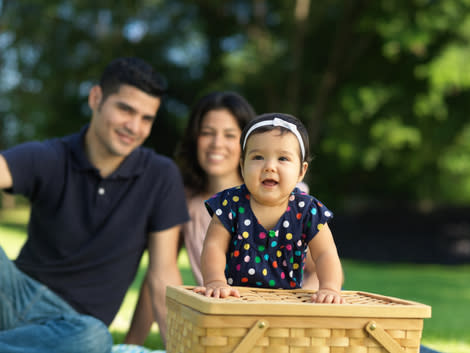Dispelling the Myths and Showing the Way for Latino Adoption

When it comes to taking care of parentless children, Hispanics have a strong reputation of stepping in and bringing up kids within the extended family. However, in this country, Latinos may not be as interested or versed in the adoption process when it's done via the official legal means.
"We have a long tradition of taking care of our own children," says Maria Quintanilla, director of the Latino Family Institute in West Covina, California, alluding to the fact that before governments got involved, children whose parents could no longer take care of them were placed by the family with grandparents, aunts or uncles. As a matter of fact, once an individual became a padrino or godparent in baptism, he or she was considered responsible of taking care of their ahijado (godchild) if the child's parents were no longer present.
Child placement goes as far as moving kids to live with a widowed grandmother or an older single aunt in a custom called prestando, which dates back generations in Latin culture. The child's family will literally "loan" (or prestar) one of their many kids to a lonely family member to keep him/her company for an indefinite period of time. "[These] are all rituals our culture has in place to take care of others' children," says Quintanilla.
PHOTOS: Celebrities who have adopted
What's keeping Latinos from adopting?
According to Quintanilla, the mix of strong cultural ideas and lack of information is keeping many Latinos from adopting in the US. Some of the myths surrounding the adoption process include:
Adopting is for the rich: In the United States the adoption process itself is free of charge for children 0-17 years of age.
"De tal palo, tal astilla" or The fruit doesn't fall far from the tree: The notion that children in need of adoption will show a tendency towards criminality or bad behavior is wrong, according to Quintanilla. She believes that the nurturing a child can get at a permanent home can make the difference in his or her life.
Being childless is your cross to bear: Admitting to infertility is painful, but the strong religious roots of the Latino community usually dictate that this is the woman's lot in life. Going out and taking in someone else's child is like going against God's design or plan for that woman and her family.
Disney's new film "The Odd Life of Timothy Green" explores story of a family's desire for children
Where to start
Félix Correa, National Director of the Puerto Rican Association of Adoptive Parents, and adoptive father of three, suggests that once prospective parents have made a decision to adopt, they need to show initiative, get informed and get trained. Every state, county and city offers training courses for those families who would like to become certified foster parents. This certification may be a pre-requirement for adoption in many states, plus it will give you real-life experience in taking care of child around the clock.
Correa explains that adoption support groups offer great resources to prospective parents during the adoption process. "These are great organizations to contact if you don't feel comfortable contacting a government adoption agency," says Correa. They will have all the legal information prospective parents will need in pamphlets as well as websites. It all starts with a call.
